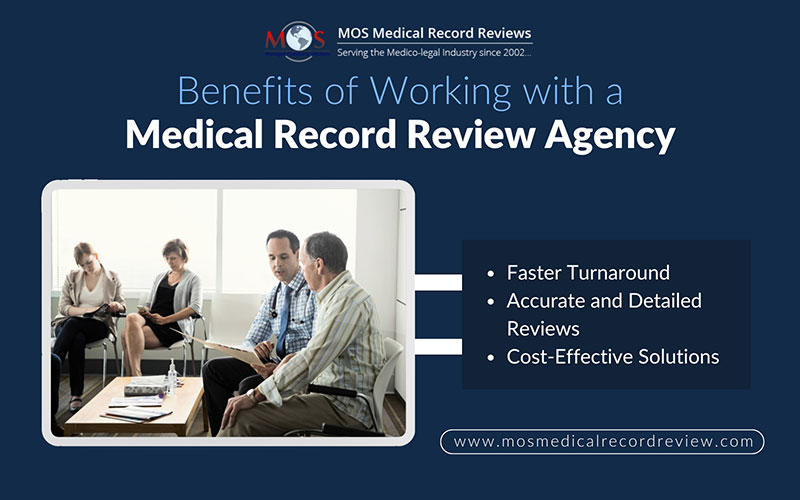From an attorney’s perspective, building an efficient case requires a systematic deciphering of voluminous medical records-abbreviation, medical jargon and timelines included. Regardless of whom you’re representing-a medical malpractice victim, a personal injury individual or handling a workers’ compensation dispute, the ability to understand and present medical evidence is critical for winning the case in your favor.
However, the sheer volume of medical documentation makes this a monumental challenge for the majority of attorneys. This is where medical summarization helps simplify the overwhelming complexity of records and gives you a technical edge in the court. In this blog, we shall explore the value of medical summaries and how they can assist you in your legal practice.
What Is the Significance of Medical Evidence in Legal Cases?
Medical evidence serves as a vital part of corroborating the claimant’s assertion in the following cases:
- Personal injury Claims: Medical records can be used to establish the extent and cause of injuries suffered.
- Medical Malpractice Lawsuits: During these scenarios, medical evidence can prove deviations from the rendered standard of care.
- Workers’ Compensation Cases: Medical documents can throw light into workplace-related injuries or conditions.
- Insurance Disputes: Validating the necessity and extent of medical treatments.
However, segregating handwritten physician notes to lab results and lab reports from a sea of intricate medical records can overwhelm even the most seasoned attorneys. Without a proper structure and evaluation, vital details can be overlooked, and timelines can be juggled around. This will lead to weaker arguments, increased case costs, and ultimately, lost opportunities for clients.
What Is the Role of Medical Summaries in Legal Cases?
A medical summary converts raw, disordered data into concise, actionable insights. These summaries provide attorneys with the relevant information required to strengthen their case.
- Concise Information: Medical summaries help attorneys get the overall picture of the case with relevant facts, instead of having to sift through pages of medical records, thereby saving time and effort.
- Chronological Timeline: One of the major advantages of record summarization is the systematic organization of events, diagnoses and treatments into a logical timeline, thereby giving clarity into any inconsistencies or significant points.
- Expert Insights: A medical summary prepared often includes clinical insights which give an idea whether the rendered treatments align with standard medical practices, thereby enabling attorneys to strategize their arguments accordingly.
What Are the Critical Aspects of Effective Medical Summaries?
There are certain key elements in a medical summary record that make it effective and give that extra edge for attorneys in winning cases. Here are a few:
- Chronological Timeline: A structured representation of medical events with respect to time, related to the case.
- Patient History: An in-depth review of the patient’s medical history with respect to the case.
- Treatment Synopsis: A comprehensive summary of treatment procedures, medications and rehabilitative care.
- Expert Views: Inclusion of clinical opinions on medical malpractices such as deviations from standard care or inconsistencies.
What Are the Challenges in Preparing an Effective Medical Summary?
Legal professionals often face numerous challenges while creating an effective medical record summary, on-time. Here’s a detailed look at some major hurdles that stand in the way:
- Tight Deadlines: Legal work is often fast-paced which means legal teams may have less time to review stacks of intricate medical records, promptly. Manual summarization of these documents-filled with complex technical jargon and the sheer volume-can be overwhelming and affect the quality of the output.
- Error-prone: Legal cases are a matter of precision and record summarization is very much prone to manual errors. Missed information or inconsistencies can lead to incomplete documentation and even affect the output of the case. This is a risk no legal team is ready to take.
- High Costs: The medical record summarization process is as expensive as it is time-intensive. A legal practice, whose expertise lies in legal-related works, will be losing their precious time and resources combing through documents. This can drive up the cost, especially for small/medium establishments.
These risks could be eliminated if you partner with third-party companies that are capable of creating effective medical summaries for law firms.
What Are the Benefits of Collaborating with a Professional Medical Record Review Agency?
Partnering with a professional AI medical record summarization agency offers a lot of advantages as opposed to attorneys who attempt to create summaries in-house.
- Speed: Spending hours or days, manually reviewing medical records is impractical these days. Record review agencies have advanced technology, such as AI, to automate record review, which enables them to analyze and summarize records in a matter of minutes, eliminating all the stress otherwise involved with a manual review.
- Precision: Mistakes are costly in litigation. Modern AI solutions utilize advanced algorithms to precisely extract relevant information and even minute details, ensuring that nothing goes overlooked. Additionally, with the availability of expert record review professionals, they will be able to identify nuanced elements in the record that may go undetected to AI.
- Cost-effectiveness: Manual record reviews are essential but it can drive up costs for legal teams that are handling multiple cases, simultaneously. A medical record review firm that leverages automation will be able to eliminate the need for resource-dependent processes, helping them to save a lot of time and money.
A Sample Case Study: The Impact of Medical Summaries on Case Outcomes
Let us consider a car accident case, where the injured client is represented by a personal injury attorney. The client suffered various injuries, including a serious brain injury, but the connection between the accident and the long-term symptoms remained vague. The attorney sought the help of a professional medical review service, which provided:
- A chronological timeline of events.
- Valuable insights into the delayed onset of certain symptoms.
- Expert opinions linking the injuries to the accident.
With such detailed information, the attorney argued for a higher settlement, citing clear medical evidence and expert-backed conclusions. This demonstrates how medical summaries can make a significant impact on case outcomes.
Final Remarks – Medical Summaries as a Tactical Tool for Attorneys
In today’s legal landscape, breaking down the intricacies of medical evidence is no longer optional—it is a necessity. It is not practical for attorneys to sift through the endless stack of documents, attend a case and seek a favorable outcome.
By partnering with a capable medical record retrieval company like MOS, legal teams can transform the way medical records are handled, turning an intimidating process into a seamless, efficient workflow.
Drowning in Complex Medical Records?
Don’t waste another minute struggling with them! MOS will provide efficient medical record summary services, enhancing your organizational workflow.





